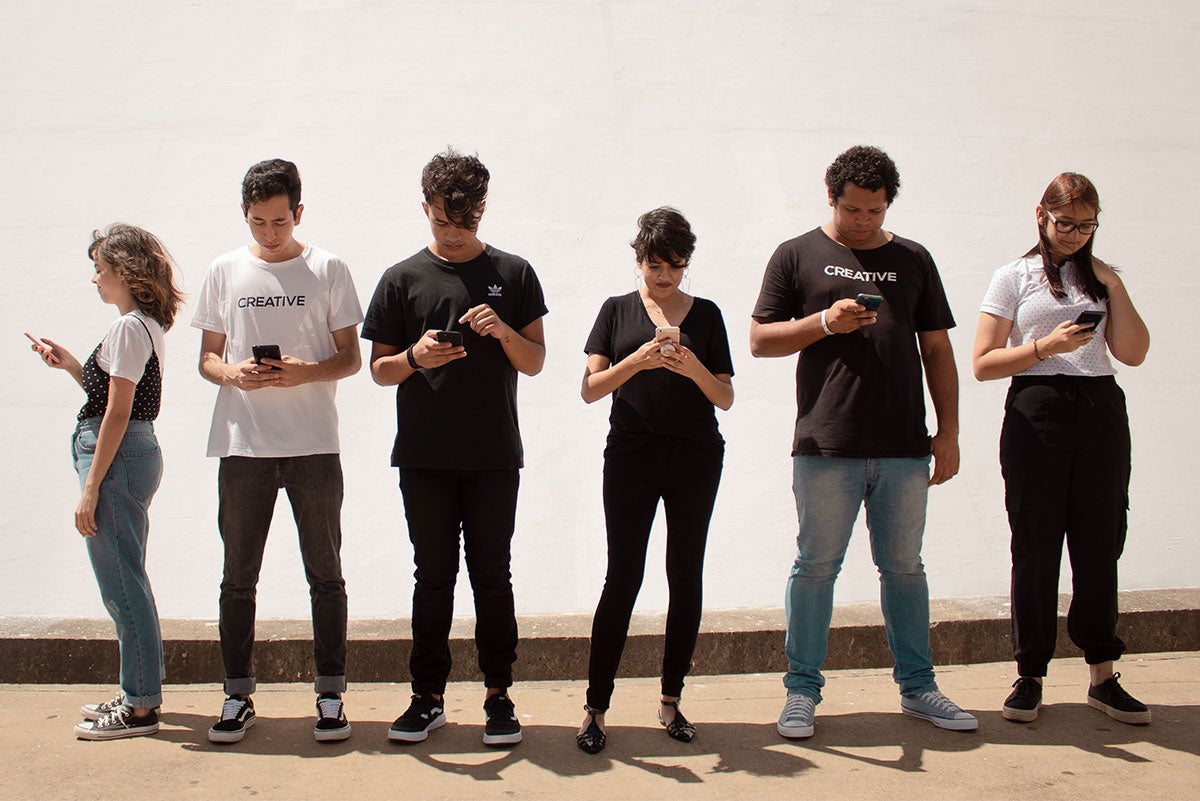Stop Scrolling: How to Maintain a Healthy Relationship with Your Phone
July 19, 2022
By: Jasmin Elphic
Categories: Healthy Living
People need diverse options of both online and offline experiences, including the chance to let our minds wander naturally.
With oppressive heat and humidity comes the annual summer search for ways to occupy ourselves indoors. In today’s day and age, whenever we are in need of some quick entertainment, we often turn to our phones. Pew Research reports that 85% of Americans own a smartphone, up from 35% just ten years ago (1).
In addition, there are definitely remnants from the major lockdown in response to the ongoing COVID-19 pandemic that has led to our recent average screen time being especially high. According to a study by JAMA Pediatrics, screen time outside of virtual school among teenagers doubled from pre-pandemic estimates of 3.8 hours per day to 7.7 hours. The internet has grown to be more than entertainment, but instead a place where we work, take classes, attend parties, and get lost in news cycles.
But excessive screen time has been associated with increased levels of anxiety and depression and poor sleep quality in many different studies (2). There are a multitude of ways to limit our screen time and use our devices in a constructive manner.
To begin, it is best to put the phone down before bed
A good night’s rest is key to brain development and cognition. Researchers from Brigham and Women’s Hospital conducted a study concluding that using devices that emit blue light – such as smartphones – before going to sleep at night can disrupt sleeping patterns by suppressing secretion of the hormone melatonin (3).
In addition to leaving your phone on the nightstand, there are other methods that allow you to reduce your nighttime blue light exposure, such as wearing blue-light blocking glasses, using your phone’s settings to dim blue light, or downloading an app to block blue light. Other activities that can help you wind down for bed include reading a book, listening to relaxing music, taking a bath, or making a cup of tea.
Scrolling is not relaxing
We may mistakenly think that when we are scrolling through our phones, that our bodies are relaxing, as it takes little out of us physically to use our phones. However, a study by Lesley University finds that too much of a constant stream of online communications and media from different sources could possibly take a toll on us mentally. A brain overload could come as a result of the easy access to information through electronic devices and social media. If the brain becomes overstimulated by too many different sources of information, there will be an increase in the production of the stress hormone, cortisol, as well as the fight-or-flight hormone, adrenaline, in response (4).
So, instead of taking a break from work to scroll through a few apps, it may be more beneficial to give your brain a rest by practicing activities such as stretching, journaling, or meditating. These activities are great ways to take a short mental break and recharge your mind.
Moderation is key
Lastly, it is important to recognize that technology is not all bad. Our phones allow us to stay in contact with loved ones, expand our knowledge, and encourage creativity. It is more realistic to set healthy limits on the way we use these devices, rather than try to cut them out completely. An example of this would be to set a timer for the length of time you would like to spend on your phone, say 30 minutes. Even if you don't immediately turn off your phone when the timer goes off, it will make you a lot more aware of the amount of time you are spending.
Another example is creating technology-free zones. If you’re at the dinner table, chances are you want to be paying attention to your meal and other people at the table instead of scrolling between each bite. Additionally, turning off notifications at times can help so that you will not be distracted while doing other tasks.
People need diverse options of both online and offline experiences, including the chance to let our minds wander naturally. When we allow our brains to act on their own for periods of time, unassisted and unstimulated by external factors such as phones, we are able to think deeper and use our imaginations (5). We need to take back control of our brains, by taking some time to be alone with our own thoughts, to daydream, and to enjoy silence. In other words, it is okay to allow ourselves to be bored.
About the author
Jasmin Elphic is a Nursing student through the University of Georgia’s BSN partnership with Augusta University. She expects to graduate with the Class of 2024.
Sources
- 1. https://www.pewresearch.org/internet/fact-sheet/mobile/
- 2. https://sitn.hms.harvard.edu/flash/2018/dopamine-smartphones-battle-time/
- 3. https://www.brighamandwomens.org/about-bwh/newsroom/press-releases-detail?id=196
- 4. https://www.brighamandwomens.org/about-bwh/newsroom/press-releases-detail?id=196
- 5. https://lesley.edu/article/why-brain-overload-happens
- 6. https://time.com/5480002/benefits-of-boredom/



